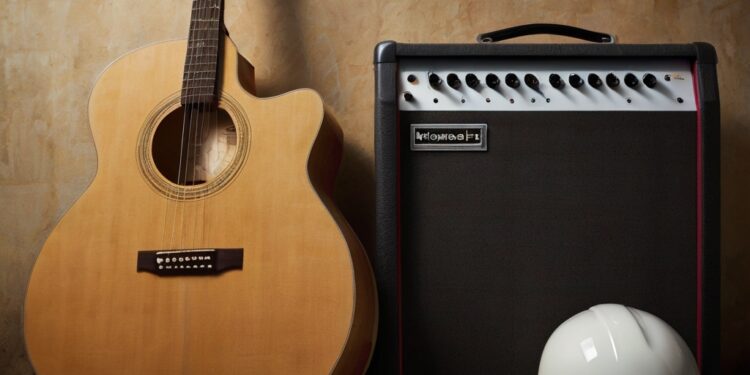The Art and Science of Decluttering Musical Instruments: What to Do With Old Pianos and More

Table of Contents
- 1 Key Takeaways
- 2 Table of Contents
- 3 Introduction: The Challenges of Instrument Decluttering
- 4 Why Proper Disposal Matters
- 5 Creative Ways to Repurpose Old Instruments
- 6 How to Donate Musical Instruments
- 7 Eco-Friendly Recycling Options
- 8 The Emotional Aspect of Giving Up Instruments
- 9 Frequently Asked Questions
- 10 Finding the Right Solution
Key Takeaways
- Discover creative and environmentally friendly solutions for old pianos and other musical instruments.
- Learn practical steps to repurpose, donate, or recycle instruments safely and efficiently.
Table of Contents
- Introduction: The Challenges of Instrument Decluttering
- Why Proper Disposal Matters
- Creative Ways to Repurpose Old Instruments
- How to Donate Musical Instruments
- Eco-Friendly Recycling Options
- The Emotional Aspect of Giving Up Instruments
- Frequently Asked Questions
- Conclusion: Finding the Right Solution

Introduction: The Challenges of Instrument Decluttering
Musical instruments are physical objects and stories of personal growth and musical journeys. However, when unused, they can become obstacles rather than inspiring artifacts. They consume significant home space, pose logistical issues, and can accumulate dust, leading to disrepair over time. This article aims to guide readers through innovative solutions to manage these challenges effectively and respectfully. Musical instruments are significant in our lives, serving as vessels of memories and emotional expression. As time passes, they may become considerable artifacts of nostalgia. While parting with these items can be a poignant decision, understanding the cost, methods, and implications of removal can ease the process. Tackling this task isn’t just about freeing up space; it’s also about responsible management of waste and preserving resources.
Finding a fitting, practical, and environmentally conscious solution requires exploring several avenues. The choices range from repurposing and donation to recycling and proper disposal. Each option plays a part in ensuring that the disposal or transformation of musical instruments positively impacts your immediate environment and the broader ecological system.
Why Proper Disposal Matters
It is impossible to overestimate the significance of appropriate disposal since it goes beyond individual convenience to include larger environmental obligations. Instruments, particularly pianos, often involve materials like metals, woods, and sometimes hazardous components like coatings or electronic parts. Inappropriate disposal can lead to environmental pollutants, contributing to landfill problems and resource wastage. Therefore, adhering to Environmental Protection Guidelines is crucial, ensuring you utilize appropriate methods to mitigate harm. Proper disposal practices safeguard the environment and align with collective sustainability goals, highlighting the intrinsic connection between individual actions and broader ecological health.
Creative Ways to Repurpose Old Instruments
Repurposing old musical instruments allows for a blend of creativity and preservation. It gives new life to objects that might otherwise face obsolescence, transforming them into unique art pieces or functional décor. For instance, piano hammers can be reimagined as elegant coat hooks or conversation-starting wall decorations. Drum cymbals might become vibrant garden sculptures, capturing and reflecting sunlight in a captivating dance of light. Similarly, guitar bodies have become avant-garde shelving units, merging aesthetic appeal with functionality. Embracing such projects supports artistic expression and resourcefulness, honoring the craftsmanship of these instruments even beyond their musical purpose.
DIY Projects
- Convert piano keys into stunning wall art, offering a melodious touch to interiors.
- Use the guitar frame to craft a shelf, which is ideal for displaying music memorabilia or books.
- Turn drum shells into stylish pendant lights, adding an industrial-chic element to living spaces.
How to Donate Musical Instruments
Donating instruments provides a means of spreading the joy of music, particularly in educational and community settings that may lack necessary resources. Several platforms facilitate these donations, connecting donors with deserving recipients who could greatly benefit from musical education. For instance, organizations like Instruments in the Cloud allow donors to select specific schools or community centers, making giving more personal and impactful. By donating, you offer a new generation the chance to learn and create music, enriching lives and fostering cultural connectivity.
Eco-Friendly Recycling Options
Recycling offers a sustainable path for instruments beyond repair or repurposing. It is impossible to overestimate the significance of appropriate disposal since it goes beyond individual convenience to include larger environmental obligations. This process reduces landfill waste and reintegrates resources back into the production cycle. Some national and corporate recycling programs also specialize in reclaiming materials, offering tailored solutions for various instrument types. Engaging such services contributes to a circular economy, reinforcing the importance of sustainable practices and reducing environmental impact through efficient resource management.
The Emotional Aspect of Giving Up Instruments
For many, parting with a musical instrument is an emotional decision, tied deeply to personal experiences and memories. Instruments often mark significant milestones, from childhood recitals to high school band performances. Facing the prospect of letting go involves navigating feelings of nostalgia and sentimentality. Acknowledging these emotions can be just as crucial as the practical aspects of decluttering. It’s comforting to know that the next phase of the instrument’s journey—whether through donation, recycling, or upcycling—allows it to continue contributing positively, becoming a part of someone else’s narrative or a transformed artistic statement. Embracing this transition can offer closure while preserving cherished memories.
Frequently Asked Questions
How can I estimate the cost of piano removal?
The cost of removing a piano might vary greatly depending on your location, the size of the piano, and the fees the service provider charges. It is advisable to contact professional removal services to obtain a personalized quote. This should encompass all process aspects, including labor, transportation, and any applicable recycling or disposal fees.
Are there tax benefits to donating musical instruments?
Donating your musical instruments to a registered charity can often qualify you for tax deductions, easing your financial burden. It is essential to secure a receipt for your donation and consult with a tax advisor to ensure you meet all requirements and accurately claim your eligible deductions.
Finding the Right Solution
Deciding on the best course of action for outdated musical instruments is a pragmatic and personal journey. Whether you elect to donate, repurpose, or recycle, the choice should reflect a balance of practicality and emotional readiness. Each option discussed contributes to sustaining environmental health, encouraging creative innovation, and perpetuating the musical legacy attached to each instrument. By bridging these aspects, you enrich your surroundings and partake in a broader responsible consumption and resourcefulness narrative. Whatever path you choose, it ensures that your musical past continues to resonate meaningfully, either as a harmonious element of someone else’s journey or a distinctive embodiment of artistry.

